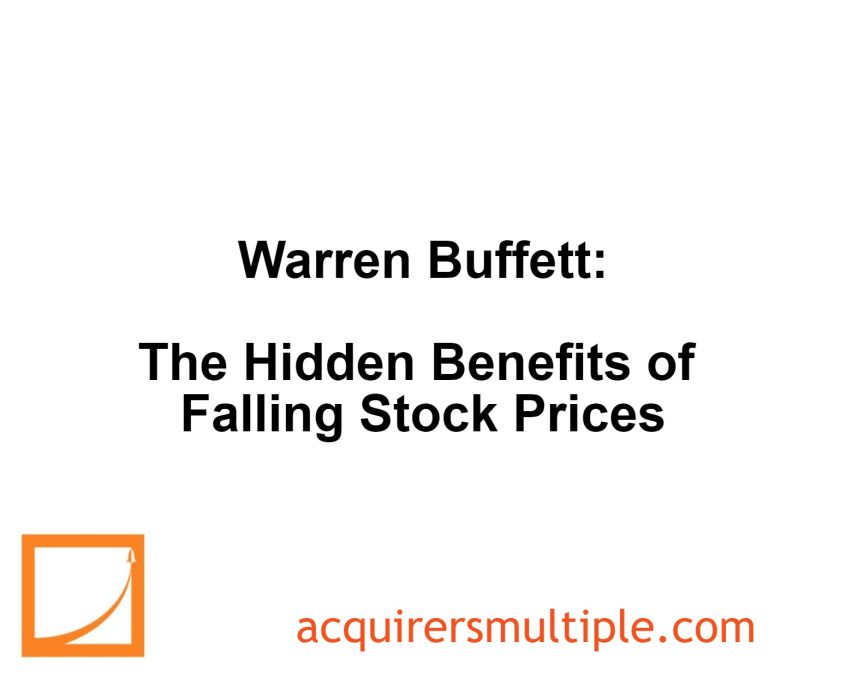In his 1997 Berkshire Hathaway Annual Letter, Warren Buffett advises that if you are a net saver, you should prefer lower stock prices, as this benefits future investments. Many investors mistakenly rejoice at rising stock prices, even though they will be net buyers of stocks, which makes no sense.
For Berkshire shareholders who do not plan to sell, lower prices are advantageous as they allow for cheaper purchases and more effective repurchase programs. With 97% of shares held long-term, market declines benefit these investors.
Buffett highlights that while past investments at low prices were rewarding, finding new opportunities may take time.
Here’s an excerpt from the letter:
A short quiz. If you plan to eat hamburgers throughout your life and are not a cattle producer, should you wish for higher or lower prices for beef? Likewise, if you plan to buy a car occasionally but are not an auto manufacturer, should you prefer higher or lower car prices? These questions, of course, answer themselves.
But now for the final exam: If you expect to be a net saver over the next five years, should you hope for a higher or lower stock market during that period? Many investors get this wrong. Even though they are net buyers of stocks for many years, they are elated when prices rise and depressed when they fall. This reaction is illogical. Only those who will be selling equities in the near future should be pleased by rising stock prices. Prospective purchasers should prefer falling prices.
For Berkshire shareholders who do not expect to sell, the choice is even clearer. Our owners are effectively saving even if they spend all their personal earnings: Berkshire “saves” for them by retaining all earnings and using these savings to purchase businesses and securities. The more cheaply we make these purchases, the more profitable the owners’ indirect savings program will be.
Additionally, through Berkshire, you own significant positions in companies that regularly repurchase their shares. The benefits of these repurchase programs increase as prices fall: when stock prices are low, the funds spent on repurchases increase our ownership of that company more than when prices are higher. For example, repurchases by Coca-Cola, The Washington Post, and Wells Fargo at low prices in the past benefited Berkshire far more than today’s repurchases at higher prices.
At the end of each year, about 97% of Berkshire’s shares are held by the same investors who owned them at the start of the year. These investors are savers and should therefore rejoice when markets decline, as this allows us and our investees to deploy funds more advantageously.
So smile when you read headlines saying “Investors lose as market falls.” Edit it in your mind to “Disinvestors lose as market falls—but investors gain.” There is a buyer for every seller, and what hurts one helps the other. (As they say in golf matches: “Every putt makes someone happy.”)
We gained enormously from the low prices of many equities and businesses in the 1970s and 1980s. Markets that were then hostile to transient investors were friendly to those taking up permanent residence. In recent years, our actions from those decades have been validated, but we have found few new opportunities. As a corporate “saver,” Berkshire continually looks for ways to deploy capital sensibly, but it may be some time before we find opportunities that excite us.
You can find the letter here:
1997 Berkshire Hathaway Annual Letter
For all the latest news and podcasts, join our free newsletter here.
Don’t forget to check out our FREE Large Cap 1000 – Stock Screener, here at The Acquirer’s Multiple:



